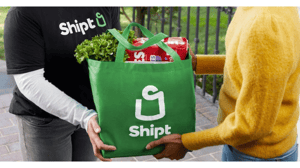Kroger Moves To rBST-free Dairy
The Kroger Co., the largest conventional supermarket operator in the United States, has announced that by February 2008, all private-label milk sold in its stores will be certified rBST-free, following similar announcements in recent months by chains including Publix and Safeway. Kroger moved to rBST-free milk in its Western markets earlier this year, including milk it processes and sells
August 13, 2007
AMY SUNG
CINCINNATI — The Kroger Co., the largest conventional supermarket operator in the United States, has announced that by February 2008, all private-label milk sold in its stores will be certified rBST-free, following similar announcements in recent months by chains including Publix and Safeway.
Kroger moved to rBST-free milk in its Western markets earlier this year, including milk it processes and sells in its City Market, Dillons, Fry's, Food 4 Less, Fred Meyer, King Soopers, QFC, Ralphs and Smith's divisions, as well as Kroger stores in Louisiana and Texas.
By February 2008, the list of stores carrying rBST-free milk will expand to include Kroger-banner stores in Arkansas, Georgia, Illinois, Indiana, Kentucky, Michigan, Mississippi, North Carolina, Ohio, South Carolina, Tennessee, Virginia and West Virginia.
Recombinant bovine somatotropin (rBST) and recombinant bovine growth hormone (rBGH) were approved by the U.S. Food and Drug Administration for use in 1993 and have been used on dairy farms since 1994. The artificial hormones are used in cows to prevent long-term declines in milk production as cows age. Monsanto, the biotechnology company that manufactures the hormones under the brand name Posilac, argues that tests have shown that milk produced by cows given the hormones is no different than milk from untreated cows. However, food activists, as well as some U.S. doctors, have remained unconvinced, and controversy over the use of the hormones has grown in recent years.
The decision was based on customer feedback, Kroger said.
“Our customers' increasing interest in their health and wellness is the basis for our decision,” said William Boehm, senior vice president and president of manufacturing for Kroger, in a release announcing the change. “We appreciate the willingness of dairy cooperatives across the country to work with us to make this transition in the next six months.” Kroger declined additional comment.
Jerry Dryer, editor of Dairy & Food Market Analyst and chief market analyst of Rice Dairy, noted that consumers want the best for their kids, who tend to be the heaviest milk users, and that the negative talk about hormones has triggered requests for alternatives.
“Some in the business refer to rBST-free as ‘organic light,’” Dryer said.
“It's a less expensive alternative to organic, and about three-quarters of the organic consumers cite ‘no hormones’ as the reason for their use of organic.”
While organic milk costs roughly twice the price of conventional milk, rBST-free milk often sells for only 10% to 15% more.
“Organic dairy has commanded a price premium of as much as 100%, yet sales have increased 20% a year for nearly a decade. Last summer, there reportedly were shortages of organic milk,” Dryer said.
Despite the fact that rBST is a protein, not a steroid, and is biologically inactive in humans, there is still a general consumer reaction and concern, said Jim Wisner, president of Chicago-based Wisner Marketing Association.
“It is one of those very interesting kinds of issues where the public oftentimes has a perception about things, but not necessarily a complete awareness of what all the related issues are,” he said.
“There's increased interest in natural foods and such, and I think what Kroger is doing is responding to concerns — and I'm sure they've done a little research on it — on the part of the consumers. They'd rather not have it [used in their dairy operations], because there's been enough in the news about it and making people worried about it. If it's what everybody wants, then the market adjusts to it.”
Kroger operates 15 dairies and three ice cream plants in the U.S. that produce all varieties of fluid milk and other dairy products such as yogurt, cottage cheese, ice cream and novelty treats.
According to the Dairy Market News published by the U.S. Department of Agriculture in January 2007, fluid milk demand in the East is strong, with some plants working on a conversion to rBST-free status to satisfy the growing demand.
“Publix made the switch several months ago,” Dryer said. “Processors in the Northeast added rBST-free milk more than a year ago. Darigold and Wilcox in the Northwest have been offering it for about a year. Countless others, processors and retailers, have already changed.”
About the Author
You May Also Like




